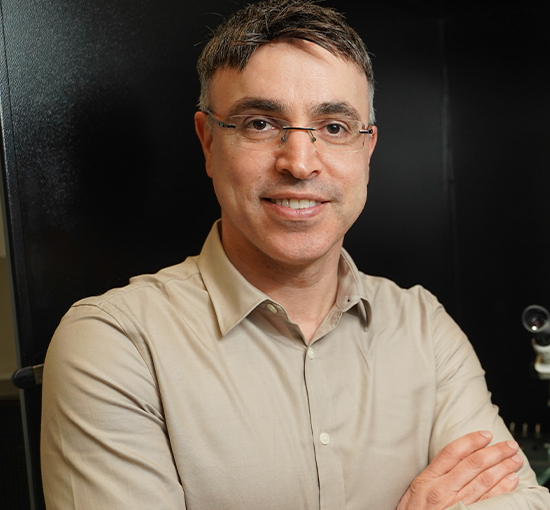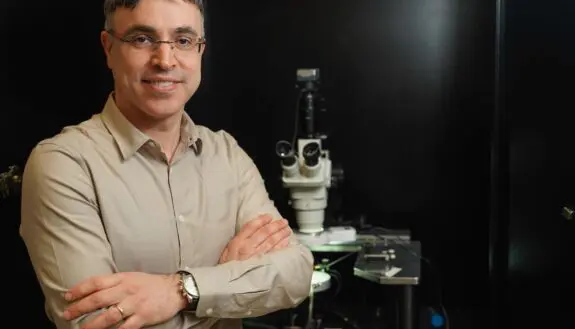Prof. Haick’s research focuses on artificial olfactory systems based on nanosensors, the screening and diagnosis of disease via breath and tissue samples, volatile biomarkers, and molecule-based electronic devices and sensors. He has developed an artificially intelligent nanoarray that can sniff out more than 17 diseases in a person’s breath, including various types of cancer, chronic and acute kidney disease, Parkinson’s and Alzheimer’s diseases, and more. The technology aids in providing personalized diagnoses and helps to tailor personalized treatment.
As a complementary tool, Prof. Haick and his team have developed “smart patches” that imitate human skin, simultaneously sensing pressure, humidity, and temperature and providing chemical analyses. The patches are self-healable and can equip computers, robots, and smart objects with a sense of touch, enabling them to “feel” their surroundings. The patented technology has implications for prosthetic limbs with tactile feedback and other applications. These technologies have led to the production of more than 52 patents and patent applications, many of which have been licensed to six international companies and leveraged into startup companies.
Prof. Haick earned his bachelor’s degree from Ben-Gurion University of the Negev in 1998 and his doctorate from the Technion in 2002. He completed postdoctoral fellowships at the Weizmann Institute of Science and the California Institute of Technology (Caltech). He returned to the Technion in 2006 as an assistant professor, becoming a full professor in 2011. In addition to his academic responsibilities, Prof. Haick volunteers extensively throughout Israel, earning the Order of the Merit of Tikkun Olam, encouraging students to dismiss prejudices in order to advance science and education. As he says, “Borders between Arabs and Jews cannot be felt in the Technion. Only excellence matters.”
Since returning to the Technion, Prof. Haick has been honored with more than 64 awards for his research and teaching. He was named to “The List of the World’s Top 35 Young Scientists” in MIT’s Technology Review, The Jerusalem Post’s “Young Israelis of the Year,” and GOOD magazine’s 2016 list of the world’s top-100 influential scientists in the medical field.






